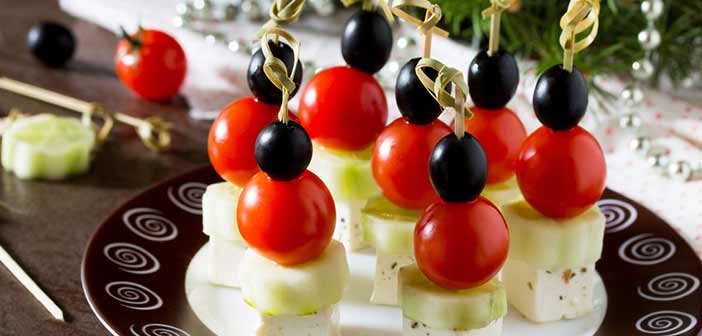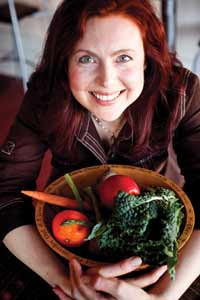 December has arrived.
December has arrived.
For some people, that means joy and for others, it translates into stress. In either case, our moods may be up and down with the increased pressures and expectations of the holidays. You might even have the additional situations of being surrounded by unhealthy food, dealing with toxic people mixed in with jovial friends and family, or suffering from backbreaking financial stress or crippling health conditions. You could be faced with weather extremes, too.
With the rollercoaster of moods and foods that will continue to surround us in the coming weeks, I prepared for you some exciting information about the fascinating areas of emotional eating, depression, and food. For example, did you know that what you feel can determine how food tastes? Did you realize that eating a Mediterranean diet could protect you from depression? You may find it surprising that food drives mood more than mood fueling food choices.
Top Tidbits on Food and Mood
1. Will eating fast foods lead to an increased risk for depression? Eating fast foods like hamburgers, sausages, and pizza, as well as commercial baked goods such as muffins, doughnuts, and croissants has been shown to be associated with an increased risk of depression (Sanchez-Villegas et al., Public Health Nutr. 2012). Do your best to balance out your food choices with some healthy, fresh options whenever available.

Deanna Minich, PhD, CN, RYT, is a mind-body-spirit nutritionist and author.
3. Will being in a positive mood lead to eating more? It’s not just a bad mood that can lead to eating more food. Researchers at the King’s College in London Institute of Psychiatry recently showed that negative mood and positive mood both lead to more food intake (Cardi et al., Neurosci Biobehav Rev. 2015). This research doesn’t mean that you shouldn’t be in a good mood. Try to find balance in your moods, keeping steady and stable without the extreme peaks and valleys that could cause you to overeat.
4. Can you eat yourself into a bad mood in just two days? A study with 44 college students at Penn State University revealed that the more calories, saturated fat, and sodium they ate, the more negative mood they reported two days later. The researchers suggest that the food causes mood shifts (Hendy, Appetite, 2012). If you find yourself in a bad mood, look at what you are eating. You can make some immediate changes that will translate into quick lifts in your mood.
5. Can snacks impact your well-being? 100 students at Cardiff University were asked to complete an online questionnaire about how they were feeling emotionally and physically. They were then randomly assigned to one of two snacking conditions – chocolate/crisps or fruit – which they ate daily in the mid-afternoon for 10 days. At the end of the 10 days, they completed the questionnaire again. The results showed that consumption of fruit was associated with lower anxiety, depression, and emotional distress than consumption of crisps/chocolate. Similarly, scores for somatic symptoms, cognitive difficulties, and fatigue were greater in the crisps/chocolate condition (Smith and Rogers, Front Nutr. 2014). Take note of your snacking behaviors during the holidays. If you find yourself eating too many cookies or indulging in lots of chocolate, shake up your snacking routine by getting some fresh fruit. Your mood will thank you for it (and those around you will, too!).
6. Can your emotions change how food tastes? A study came out this month that assessed taste and emotions of 550 people who attended hockey games. There were a total of eight games, four wins, three losses, and one tie. The researchers found that positive emotions during the winning games correlated with enhanced sweet and diminished sour intensities while negative emotions lead to heightened sour and decreased sweet tastes (Noel and Dando, Appetite, 2015). Take time to taste your food and have awareness that the emotions you are feeling are not only influencing what you are eating, but how things taste. If you take your time to eat mindfully, you’ll be more in the moment, and, as the studies suggest, you’ll likely eat less and feel more satisfied.
7. Can being bored drive you to eat? Researchers at the North Dakota State University would say “yes.” In a sample of 552 college students, they discovered that those prone to being bored and lacking emotional coping skills led to inappropriate eating behavior, like eating when bored or in response to negative emotions (Crockett et al., J Health Psychol. 2015). Being bored is probably the least of your worries during the holidays; however, you may have more down time which means that you could be looking for things to do. Fill your time with healthy communities and physical activity to keep you pleasantly busy.
8. Does your personality drive your eating habits? An interesting publication in the journal Appetite earlier this year brought to light many findings about one’s personality and eating: (1) “…high openness to experience were associated with higher fruit, vegetable and salad and lower meat and soft drink consumption”; (2) “High agreeableness was associated with low meat consumption”; (3) Conscientiousness mainly promoted fruit consumption, prevented meat consumption and intake of sweet and savory foods and of sugar-sweetened soft drinks; (4) Neuroticism promoted consumption of sweet and savory foods by promoting emotional and external eating. Well, perhaps we can’t change who we are, but we can become more aware of our actions. If you find that you are always on edge and feeling neurotic, try to put yourself in the space of agreeableness and openness, which will contribute positively to your eating habits.
9. Does being a “morning person” make you less apt to eat emotionally? If you like mornings more than evenings and you find yourself more alert in the early hours, researchers at the University of Helsinki, Finland, would tell you that you probably have lower depressive symptoms and emotional eating based on their study with 2,325 men and 2,699 women (Konttinen et al., Chronobiol Int, 2014). Make sure you are getting sufficient sleep during the holidays so you do not crave foods. If possible, try to mirror your rhythm with that of nature: waking up early with the sun and going to bed early when it is dark. You’ll be more in balance on the inside through the cues on the outside.



